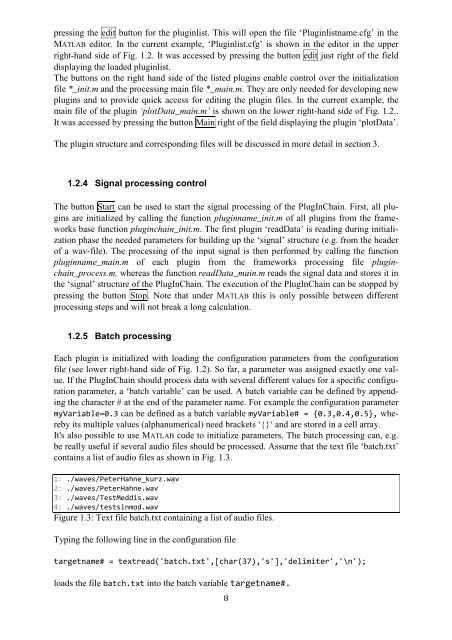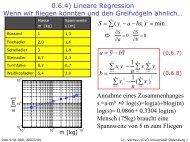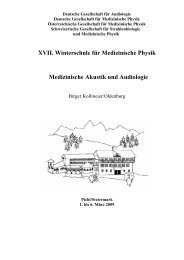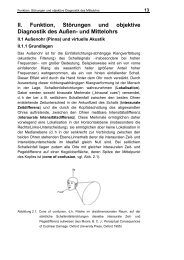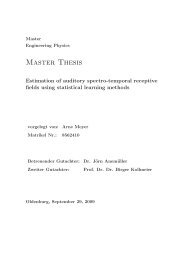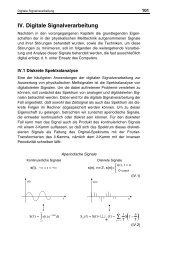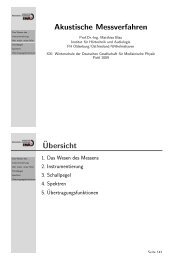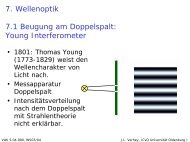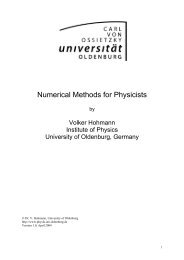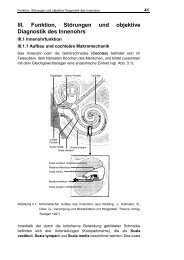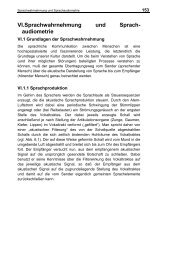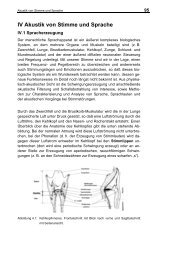PlugInChain documentation - Universität Oldenburg
PlugInChain documentation - Universität Oldenburg
PlugInChain documentation - Universität Oldenburg
Create successful ePaper yourself
Turn your PDF publications into a flip-book with our unique Google optimized e-Paper software.
pressing the edit button for the pluginlist. This will open the file ‘Pluginlistname.cfg’ in the<br />
MATLAB editor. In the current example, ‘Pluginlist.cfg’ is shown in the editor in the upper<br />
right-hand side of Fig. 1.2. It was accessed by pressing the button edit just right of the field<br />
displaying the loaded pluginlist.<br />
The buttons on the right hand side of the listed plugins enable control over the initialization<br />
file *_init.m and the processing main file *_main.m. They are only needed for developing new<br />
plugins and to provide quick access for editing the plugin files. In the current example, the<br />
main file of the plugin ‘plotData_main.m’ is shown on the lower right-hand side of Fig. 1.2..<br />
It was accessed by pressing the button Main right of the field displaying the plugin ‘plotData’.<br />
The plugin structure and corresponding files will be discussed in more detail in section 3.<br />
1.2.4 Signal processing control<br />
The button Start can be used to start the signal processing of the <strong>PlugInChain</strong>. First, all plugins<br />
are initialized by calling the function pluginname_init.m of all plugins from the frameworks<br />
base function pluginchain_init.m. The first plugin ‘readData’ is reading during initialization<br />
phase the needed parameters for building up the ‘signal’ structure (e.g. from the header<br />
of a wav-file). The processing of the input signal is then performed by calling the function<br />
pluginname_main.m of each plugin from the frameworks processing file pluginchain_process.m,<br />
whereas the function readData_main.m reads the signal data and stores it in<br />
the ‘signal’ structure of the <strong>PlugInChain</strong>. The execution of the <strong>PlugInChain</strong> can be stopped by<br />
pressing the button Stop. Note that under MATLAB this is only possible between different<br />
processing steps and will not break a long calculation.<br />
1.2.5 Batch processing<br />
Each plugin is initialized with loading the configuration parameters from the configuration<br />
file (see lower right-hand side of Fig. 1.2). So far, a parameter was assigned exactly one value.<br />
If the <strong>PlugInChain</strong> should process data with several different values for a specific configuration<br />
parameter, a ‘batch variable’ can be used. A batch variable can be defined by appending<br />
the character # at the end of the parameter name. For example the configuration parameter<br />
myVariable=0.3 can be defined as a batch variable myVariable# = {0.3,0.4,0.5}, whereby<br />
its multiple values (alphanumerical) need brackets ‘{}‘ and are stored in a cell array.<br />
It's also possible to use MATLAB code to initialize parameters. The batch processing can, e.g.<br />
be really useful if several audio files should be processed. Assume that the text file ‘batch.txt’<br />
contains a list of audio files as shown in Fig. 1.3.<br />
1: ./waves/PeterHahne_kurz.wav<br />
2: ./waves/PeterHahne.wav<br />
3: ./waves/TestMeddis.wav<br />
4: ./waves/testsinmod.wav<br />
Figure 1.3: Text file batch.txt containing a list of audio files.<br />
Typing the following line in the configuration file<br />
targetname# = textread('batch.txt',[char(37),'s'],'delimiter','\n');<br />
loads the file batch.txt into the batch variable targetname#.<br />
8


